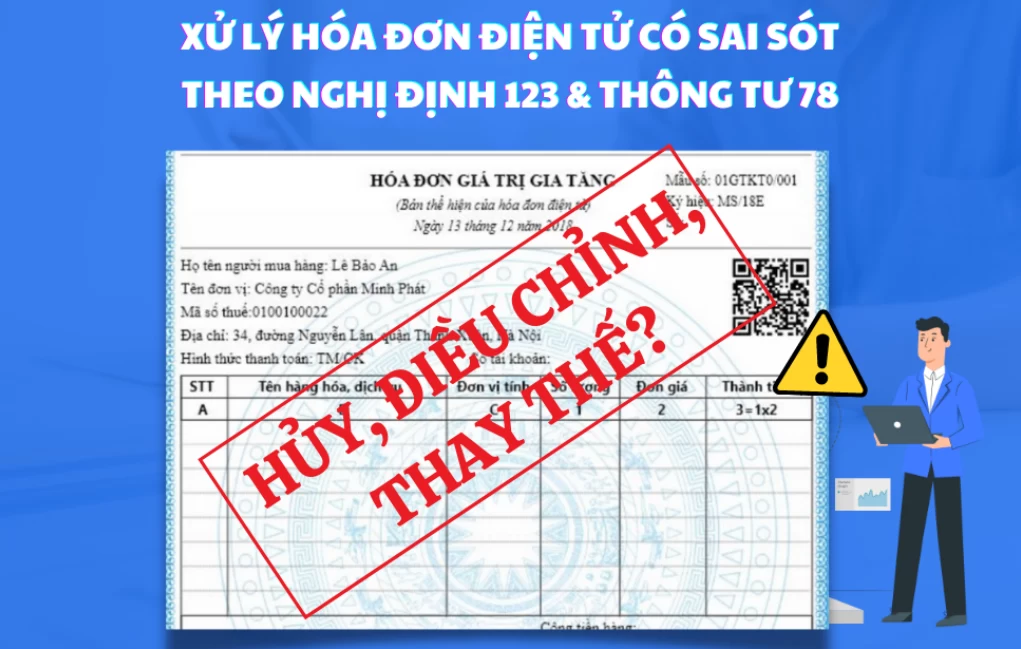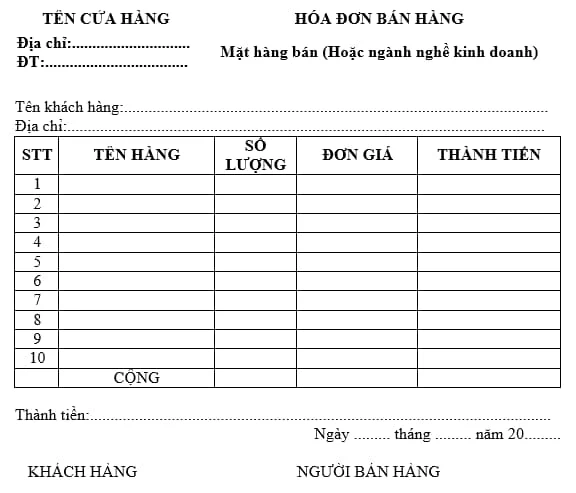Setting up a company in Vietnam can be an exciting venture due to the country’s rapidly expanding economy and strategic location in Southeast Asia. However, it is important to be aware of the various legal and regulatory requirements that must be met for a smooth and successful setup. Let’s explore important requirements with Informly when setting up a company in Vietnam !

How to choose the right type of company when setting up a business in Vietnam
The right company structure not only ensures legal compliance but also impacts your business strategy, operations, and financial benefits in the future. In Vietnam, there are several common types of companies that foreign investors can establish, each with its own advantages and legal requirements.
1. Limited Liability Company (LLC)
The Limited Liability Company (LLC) is one of the most popular business types for foreign investors. It requires at least one founding member and offers limited liability for company debts.
The key benefit of an LLC is that your liability is limited to your capital contribution, which helps reduce personal risks. This structure is ideal for small to medium-sized businesses that want to operate independently without complex procedures.
2. Joint-Stock Company (JSC)
The Joint-Stock Company (JSC) is a type of company that can raise capital by issuing shares and allows for easy transfer of shares. A JSC is a good option for larger businesses or projects that require significant capital raising.
However, one of the key requirements of a JSC is having at least three shareholders and adhering to legal requirements regarding shareholder meetings and board of directors.
3. Representative Office
If you only want to test the market or establish relationships with partners in Vietnam without directly engaging in business activities, a representative office could be the right choice.
However, a representative office cannot conduct business activities or sign contracts. This is a great option if you want to research the market or promote your brand without setting up a fully operational company.
4. Branch Office
A branch office is a direct extension of the parent company that can engage in business activities in Vietnam. To establish a branch, the parent company must already have at least one branch in Vietnam and must register with local authorities. A branch office can be a good option if you want to expand the operations of the parent company without setting up a new company.
Choosing the right type of company is crucial to ensuring a smooth and profitable venture in Vietnam. Foreign investors should also ensure compliance with Vietnam’s foreign ownership regulations and understand the necessary legal steps to establish a business successfully.

Important documents to prepare when registering a company in Vietnam
When registering a company in Vietnam, preparing the necessary documents is an important step to ensure the process goes smoothly. Foreign investors must provide the required documents according to Vietnamese legal requirements to complete the business registration procedures.
1. Business registration application
This is the essential document in the company registration process in Vietnam. The business registration application must include information about the type of company, company name, head office address, and details of the founding members or shareholders.
For Limited Liability Companies (LLC), information about the charter capital and the shareholding ratio of each member is required.
2. Company charter
The company charter is a crucial document that defines the rights and obligations of the company members, as well as the company’s organizational structure and operational procedures. The charter must be signed by all founding members and comply with Vietnamese legal regulations. Drafting a clear and detailed charter will help the company operate effectively and transparently.
3. Identification documents of founding members
The founding members or shareholders of the company must provide copies of identification documents (ID card or passport) to verify their identities. For foreign nationals, the documents must be legalized or translated into Vietnamese with notarization. Providing these documents is a mandatory requirement to ensure the legality of the company formation process.
4. Lease agreement for business premises
For companies operating in Vietnam, having a legal business address is a mandatory requirement. Investors need to provide a lease agreement or proof of ownership of the property the company will use as its head office. This is not only a legal requirement but also ensures that the company has a physical establishment to operate from.
5. Capital contribution document
Depending on the type of company you choose, demonstrating the charter capital may include transferring money into the company’s bank account or providing documentation of capital contributions in the form of assets or other tangible goods. These documents will be required for company registration and to verify the company’s initial financial status.
6. Power of attorney (if applicable)
If you cannot personally participate in the registration process, you will need to provide a power of attorney for a legal representative to complete the registration procedures on your behalf. This power of attorney must be legally signed and notarized to ensure the legitimacy of the action taken on your behalf during the company formation process.

Important requirements when setting up a company in Vietnam
When a company is forming in Vietnam, investors and entrepreneurs need to pay attention to several important requirements to ensure the registration and operation process runs smoothly. Vietnam has a clear legal framework and regulations regarding company formation, especially for foreign investors.
Legal entity type selection
When starting to set up a company in Vietnam, one of the first crucial decisions is choosing the right legal entity. Each entity type has different legal requirements and regulations, and making the right choice will impact your business scale, tax obligations, and legal responsibilities.
Registered capital requirements
Different business types have different minimum capital requirements. For example, the minimum capital for a Limited Liability Company may vary depending on the industry and other factors. This is not only a legal requirement but also affects the company’s operational capacity and reputation in the eyes of partners and clients.
Business location and office lease
To ensure your company complies with Vietnamese laws, you need to have a valid office address in Vietnam. A lease agreement or proof of property ownership where your company will operate is essential to complete the registration process.
Legal documentation and approvals
To set up a company in Vietnam, you need to prepare a complete legal dossier, including the business registration application, company charter, and identification documents of the founding members.
Additionally, if your company operates in a sector requiring special permits (such as financial services or healthcare), you will need to obtain approvals and licenses from the relevant authorities.
Tax registration and compliance
After registering your company, you must register for taxes with the local tax authorities. Vietnam has a complex tax system, including Value Added Tax (VAT), Corporate Income Tax (CIT), Personal Income Tax (PIT), and other taxes. You need to fully understand your company’s tax obligations and comply with the regulations to avoid legal issues in the future.

The process of setting up a company in Vietnam for foreigners
Setting up a company in Vietnam for foreigners can offer exciting business opportunities, but it also requires following a specific legal process. Below is a detailed guide to the necessary steps when setting up a company in Vietnam.
Step 1: Choosing the right business structure
Before starting the company formation process in Vietnam, it is crucial to identify the right business structure that suits your business goals. Common options for foreigners include Limited Liability Companies (LLC), Joint-Stock Companies, and Representing Office. Each type has its legal requirements and advantages, so you need to choose the right structure to avoid future legal issues.
Step 2: Registering your investment
This process requires you to submit information about your investment plan, business sectors, and registered capital. Depending on the type of company and industry, the licensing process can take anywhere from a few weeks to several months.
Step 3: Legal documents and business registration
To complete the company formation process in Vietnam, you must prepare a full legal dossier. This includes the business registration application, copies of the personal identification documents of shareholders and directors, as well as documents related to registered capital and office address. After submitting the documents, the authorities will review and issue the Business Registration Certificate.
Step 4: Tax registration and obtaining licenses
Once your company receives the Business Registration Certificate, you need to register for taxes with the local tax authorities. Additionally, if your business activities require specialized licenses, you will need to obtain them. These licenses may include environmental permits, food safety permits, or other industry-specific approvals, depending on your business sector.
Step 5: Opening a bank account and capital deposit
Another important step is opening a company bank account and depositing the registered capital into it. After depositing the capital, you will receive a confirmation receipt from the bank, which is necessary to complete the legal procedures.
Step 6: Finalizing operations and obtaining business licenses
Once all procedures are completed, you will receive your business license and can legally begin operations in Vietnam. However, you must also maintain tax obligations, financial reporting, and other legal procedures as required by Vietnamese law.

Types of taxes to pay after setting up a company in Vietnam
After setting up a company in Vietnam, it is crucial to understand the various taxes that your business will need to pay to ensure legal compliance and efficient operation. Vietnam has a diverse tax system, understanding these taxes will help you plan your finances effectively and avoid legal risks during your business operations.
1. Corporate Income Tax (CIT)
Corporate Income Tax (CIT) is the main tax that businesses need to pay in Vietnam. This tax is applied to the net profit of the company after deducting allowable expenses.
The current CIT rate in Vietnam is 20%, although there may be lower rates or tax incentives for newly established businesses or certain industries.
2. Value-Added Tax (VAT)
Value-Added Tax (VAT) is applied to most transactions of goods and services in Vietnam. The common VAT rate is 10%, though some industries may have a lower rate or be exempt. Businesses are required to file and pay VAT quarterly or monthly, depending on their revenue.
3. Personal Income Tax (PIT)
If your company employs staff, you will need to pay Personal Income Tax (PIT) on behalf of your employees. This tax is calculated based on the salary of the employees, with tax rates varying depending on income levels. Personal income tax rates can range from 5% to 35%, depending on the employee’s earnings.
4. Withholding Tax
Withholding tax is a tax that businesses need to pay when making payments to foreign partners or individuals who are non-residents in Vietnam. This tax may apply to income from services, interest, dividends, and asset transfers. The withholding tax rate ranges from 5% to 10%, depending on the type of income.
5. Environmental Tax
Certain businesses that operate in manufacturing or use products that impact the environment are required to pay environmental tax. This tax applies to products that cause pollution, such as petroleum, emissions, and plastic packaging. The tax rate varies depending on the product type and Vietnam’s legal regulations.
6. Import and Export Duties
If your company engages in import or export activities, you will need to pay import and export duties. The rates depend on the type of goods and trade agreements between Vietnam and other countries. These rates may change depending on trade policies and international tax incentives.
Why choose Informly as your partner for company formation services in Vietnam
When you decide to set up a company in Vietnam, choosing the right partner to assist you in this process is crucial. With in-depth knowledge of how to set up a company, Informly will help you save time, minimize risks, and ensure full compliance with Vietnam’s laws. Here are some reasons why Informly is the ideal partner for company formation services in Vietnam.
Expertise in Vietnamese regulations
Informly has a team of experts with years of experience in helping foreign investors set up businesses in Vietnam. We have an in-depth understanding of the complex legal regulations and stay updated on any changes in the law, ensuring your business avoids mistakes during the registration process.
Comprehensive company formation services
We offer comprehensive company formation services, including legal consulting, preparation of necessary documents, registration with relevant authorities, and assistance with tax and accounting matters. Informly guides you through each step of this process, ensuring your business operates smoothly from day one.
Transparent pricing and timely execution
Informly is committed to offering services at transparent and reasonable prices with no hidden fees. We understand that time is crucial for investors, and therefore our commitment is to complete all business registration procedures on time, allowing you to begin your operations without delays.
Tailored solutions for foreign investors
We pay special attention to the needs and requirements of foreign investors, helping them understand the business environment in Vietnam and the steps involved in setting up a company. Informly’s solutions are tailored to each specific case, ensuring that investors can optimize their benefits while complying with all legal regulations when establishing their business.
Ongoing support for business growth
We don’t just assist in the company formation process; we also provide after-service support to ensure the sustainable development of your business in Vietnam. From tax and accounting advice to handling legal issues that may arise during operations, Informly is always ready to support you throughout your business journey.
Choosing Informly as your partner for company formation in Vietnam is a smart decision to ensure professional, comprehensive, and timely support throughout your business journey in this promising market. We are committed to providing the best solutions for the success of your business. Contact us through hotline: 0907392969 or our website Informly today to get expert advice on every step of setting up your company!











